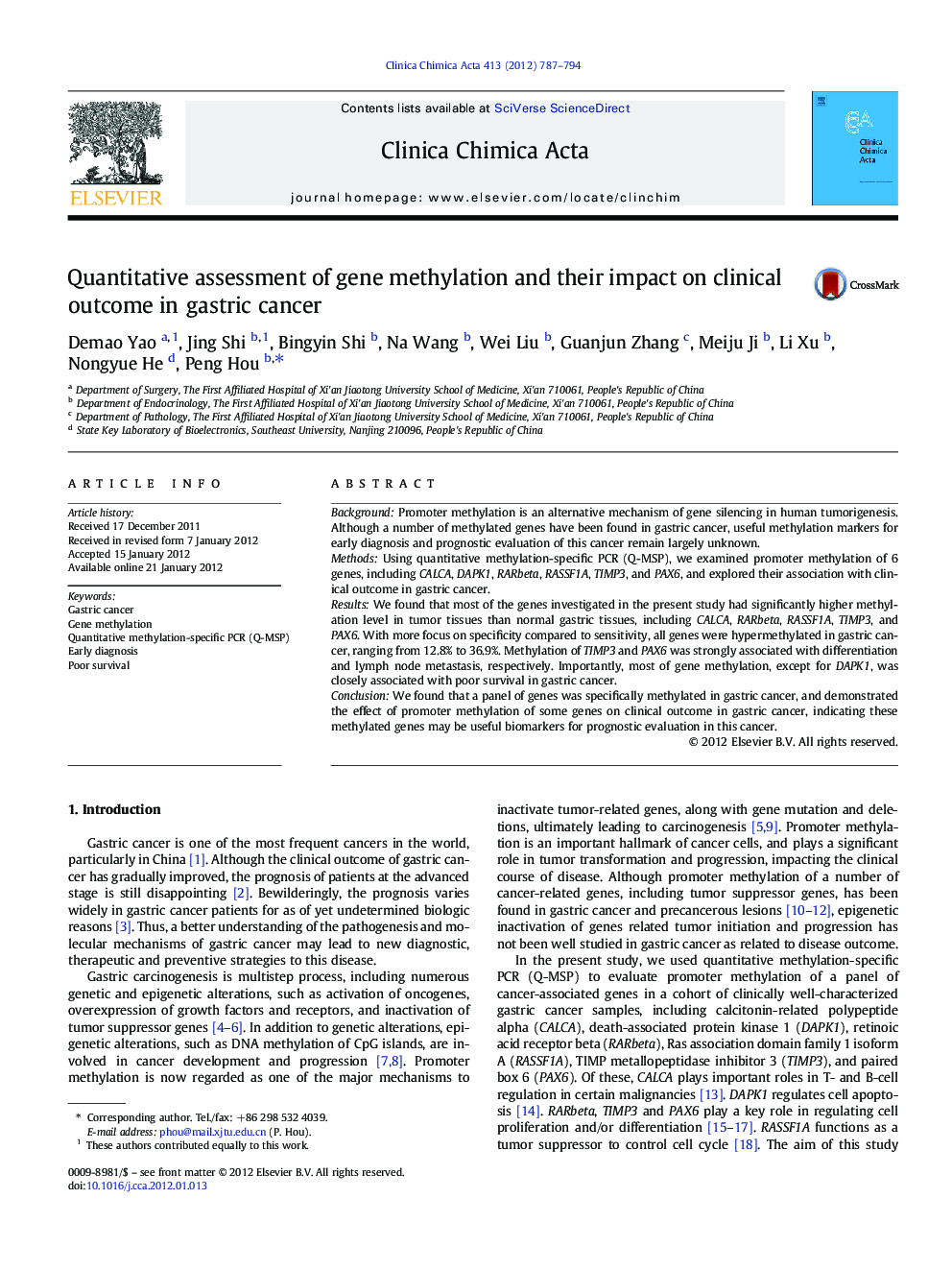| Article ID | Journal | Published Year | Pages | File Type |
|---|---|---|---|---|
| 1966071 | Clinica Chimica Acta | 2012 | 8 Pages |
BackgroundPromoter methylation is an alternative mechanism of gene silencing in human tumorigenesis. Although a number of methylated genes have been found in gastric cancer, useful methylation markers for early diagnosis and prognostic evaluation of this cancer remain largely unknown.MethodsUsing quantitative methylation-specific PCR (Q-MSP), we examined promoter methylation of 6 genes, including CALCA, DAPK1, RARbeta, RASSF1A, TIMP3, and PAX6, and explored their association with clinical outcome in gastric cancer.ResultsWe found that most of the genes investigated in the present study had significantly higher methylation level in tumor tissues than normal gastric tissues, including CALCA, RARbeta, RASSF1A, TIMP3, and PAX6. With more focus on specificity compared to sensitivity, all genes were hypermethylated in gastric cancer, ranging from 12.8% to 36.9%. Methylation of TIMP3 and PAX6 was strongly associated with differentiation and lymph node metastasis, respectively. Importantly, most of gene methylation, except for DAPK1, was closely associated with poor survival in gastric cancer.ConclusionWe found that a panel of genes was specifically methylated in gastric cancer, and demonstrated the effect of promoter methylation of some genes on clinical outcome in gastric cancer, indicating these methylated genes may be useful biomarkers for prognostic evaluation in this cancer.
► Frequent gene methylation was found in gastric cancer. ► Gene methylation can affect clinical outcome in gastric cancer. ► Gene methylation may be used to evaluate prognosis of gastric cancer patients.
